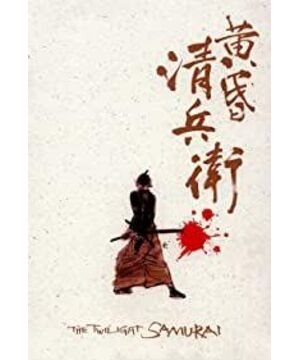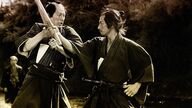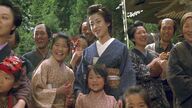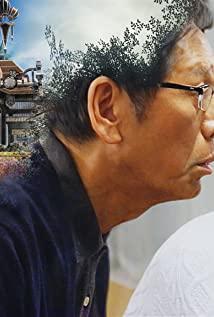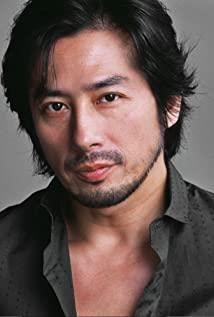The romantic and tragic period work can also be regarded as the mirror language of the play, and the exquisite service and transformation of the road can feel Yamada Yoji's serious attitude of sharpening his sword in ten years.
In an era of collapse, there will always be regrets of one kind or another that can be talked about. The era when Qing soldiers survived was an era of struggle that was bound to die, but not dead. The Tokugawa shogunate, which lasted for more than 260 years, came to an end, and Japan bid farewell to feudalism. The original class system collapsed. There are such moral and sincere people in troubled times, but they have hurriedly passed through a bleak and unfortunate life, which is bound to make people cry with emotion.
Yamada Yoji's construction of the image of the samurai is relatively anti-typing and anti-textbook, throwing away the image of the sturdy and robust prodigal-like historical charm, creating a soil atmosphere that can be said to be dirty, more localized, This is one of the reasons why Yamada Yoji is very popular: he always cuts in from an equal and cordial civilian perspective, removes exaggerated sensationalism, puts an end to metaphysical abstraction, and makes his works closer to "realism" movies category of styles.
"In Iguchi Kiyobei, you can hardly see the image features of the imaginary samurai. He is very caring, he is kind and filial, he is poor, he does not play, he does not pay attention to food and clothing, he does not dance with guns or swords, but He likes field farming and nature, he works diligently and lives well, and he even refuses the opportunity to "do his best" for the feudal lord. In the past years, this was a "high honor", it was A sign of the success of a samurai. In short, everything about Iguchi seems to be "outrageous". As a samurai belonging to the noble class, he is actually no different from a commoner. The samurai life in Director Yamada's lens is less legendary and more Fireworks, and the whole film is driven by the reminiscence narrative of Qingbingwei's elderly daughter. It is in this narrative that the history of the samurai is reproduced. It seems that inadvertently, the samurai era is solemn and hypocritical. The mirror image of history is deconstructed.”
Yamada Yoji does not want to publicize any "samurai spirit", but more to seek and identify with a quality of perseverance and forbearance in daily life, and also to show a rational attitude and courage to face up to and reflect on history. I hope that the old man can always maintain his flourishing creativity and bring more romantic works that are more approachable and deeply rooted in the hearts of the people.
View more about The Twilight Samurai reviews


